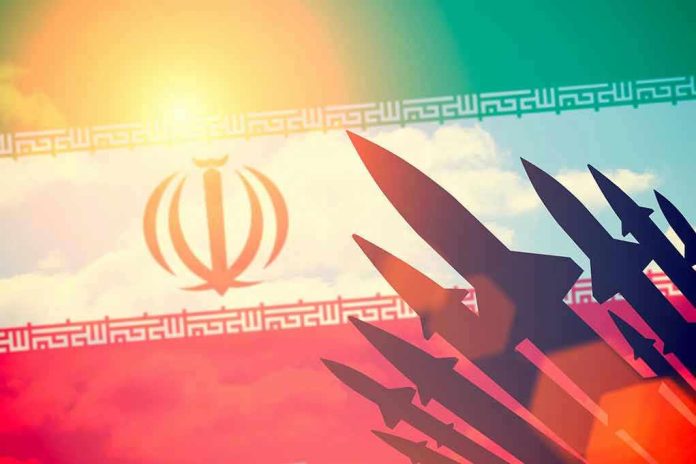
Iran now declares its military arsenal is absolutely off-limits in nuclear talks, while the world reels from a June war that saw Israel and Iran unleash their full military might and left the so-called “international community” scrambling for answers no one seems brave enough to give.
At a Glance
- Iran refuses to discuss its military capabilities—including ballistic missiles—in any nuclear negotiations.
- June 2025 marked unprecedented direct warfare between Israel and Iran, with US military intervention.
- Ceasefire was only achieved after massive casualties and American diplomatic pressure.
- Long-term instability and the risk of a regional arms race are now higher than ever.
Iran Draws Its Red Line: Missiles Are Not Up for Debate
Iran’s leadership sent a message so clear even the most sleep-deprived bureaucrat in Brussels could understand it: their “military capabilities”—read: that massive, ever-growing pile of ballistic missiles—are not, and will never be, on the table in any nuclear negotiations. Foreign Minister Abbas Araghchi hammered this home after the June war, declaring Iran’s defense systems and missile programs are a sacred national right. And why wouldn’t they? When you’ve just survived the most direct attack on your soil since the Iran-Iraq war, with Israeli jets and American bombers lighting up your skies, you start to see why the mullahs have zero interest in letting the world poke around their missile bunkers.
Israeli officials, for their part, have been warning about the existential threat posed by Iran’s nuclear ambitions for years. But after the latest round of conflict, nobody is pretending the problem is going away. Iran’s refusal to negotiate on its military arsenal, especially its missile program, is now the elephant in the negotiating room—one every Western diplomat is desperately trying to ignore while the clock ticks on Iran’s nuclear “breakout” capability.
June 2025: The War That Changed Everything—And Nothing
The so-called “international community” spent decades issuing strongly worded press releases, imposing sanctions, and pretending a few billion dollars in frozen assets would keep the peace. Then, on June 13, 2025, Israel launched Operation Rising Lion, hammering Iranian nuclear and military sites. Iran’s response: unleash a barrage of more than 550 ballistic missiles and 1,000 drones at Israeli cities and military bases. The United States, under President Trump, stepped in to defend Israel and—when things got even hotter—hit back at Iranian nuclear sites. The result? Over a thousand dead in Iran, dozens more in Israel, and a US base in Qatar struck for good measure. A fragile ceasefire, brokered by regional players and American pressure, finally halted the carnage after 12 days.
This wasn’t the usual shadow war. This was open, direct state-on-state conflict, the kind the so-called experts always claimed would never happen because “deterrence” would hold. Now, with so much destruction and both sides licking their wounds, the only thing anyone can agree on is that the Middle East is more unstable than ever. And what did all that fighting accomplish? Iran’s nuclear program was set back, but not destroyed. Israel proved it will act before it’s too late. And America, once again, played global cop—while footing the bill and absorbing the diplomatic backlash.
No Lessons Learned: The West’s Blind Spot on Missiles and Deterrence
If you thought the carnage would force negotiators to get serious, think again. Iran is more defiant than ever, and its leaders are now publicly thumbing their noses at any talk of limiting their military power. The West, meanwhile, keeps pushing for more nuclear talks, as if ignoring Iran’s missiles will somehow make them go away. Experts warn that leaving Iran’s missile arsenal out of negotiations is not just a missed opportunity—it’s a gaping security risk that invites more conflict down the road. But the usual suspects in Washington and Brussels seem content to let the region slide toward an arms race, just as long as they can keep issuing statements about “peace” and “diplomacy.”
The bottom line is simple: Iran and Israel just proved that direct war is not only possible, but likely, if the world keeps kicking the can down the road. Iran’s red line is now public and non-negotiable. The US is left trying to clean up the mess, and American taxpayers are once again paying for the privilege of global “leadership” while the rest of the world hides behind empty rhetoric. Family values? National sovereignty? Real security? All sacrificed at the altar of appeasement and wishful thinking. The consequences of ignoring reality are piling up, and the next round may make June 2025 look tame by comparison.




